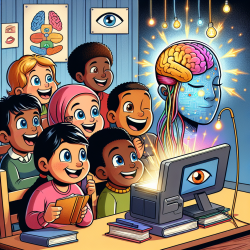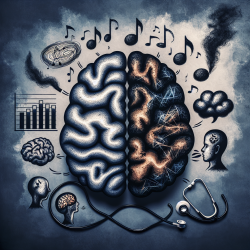In our work at TinyEYE, we are always looking for ways to support the cognitive development of children who have experienced an ischemic stroke. A recent research article, "The influential factors and non-pharmacological interventions of cognitive impairment in children with ischemic stroke," offers valuable insights that can help practitioners like us improve our skills and outcomes for these young patients.The study highlights several key factors that influence cognitive outcomes in children following an ischemic stroke:
- Age: Cognitive outcomes tend to be poorer in children under 1 year and over 10 years of age.
- Lesion Characteristics: Larger infarct areas and cortical involvement are associated with worse cognitive outcomes.
- Epilepsy: Children with epilepsy following a stroke generally exhibit more substantial cognitive impairments.
- Environmental Factors: Socioeconomic status and family support play significant roles in cognitive recovery.
The research also explores several non-pharmacological interventions that can be beneficial for cognitive rehabilitation:
Exercise Training
Physical exercise has shown promise in improving cognitive function by enhancing synaptic plasticity and promoting neuronal circuit reorganization. For children, incorporating moderate-to-vigorous physical activity can lead to significant cognitive improvements.
Psychological Interventions
Psychological interventions, such as strategy training and cognitive retraining, are essential for helping children return to their daily activities. These interventions focus on leveraging cognitive strengths to compensate for deficits.
Neuromodulation Strategies
Non-invasive techniques like transcranial direct current stimulation (tDCS) and repetitive transcranial magnetic stimulation (rTMS) can help restore neural network function and improve cognitive outcomes.
Other Interventions
Additional approaches such as computer-assisted cognitive training, brain-computer interfaces (BCI), virtual reality (VR), music therapy, and acupuncture also show potential for cognitive rehabilitation in children.While the evidence for these interventions is still developing, their potential benefits make them worth exploring further. By staying informed about the latest research and incorporating these strategies into our practice, we can provide better support for children recovering from ischemic stroke.To read the original research paper, please follow this link:
The influential factors and non-pharmacological interventions of cognitive impairment in children with ischemic stroke.










